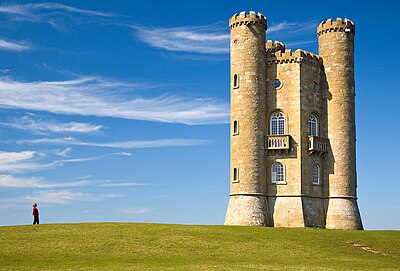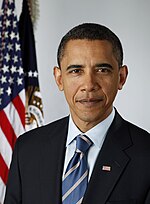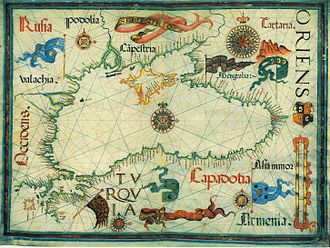User:Wiki User 68/My Portal
Wiki User 68/My Portal
 |
 |

| |

Wiki User 68 hails from the Great British Isles specifically England which is a country that is part of the United Kingdom.[1][2][3] Its inhabitants account for more than 83% of the total UK population,[4] whilst its mainland territory occupies most of the southern two-thirds of the island of Great Britain. England shares land borders with Scotland to the north and Wales to the west and elsewhere is bordered by the North Sea, Irish Sea, Celtic Sea, Bristol Channel and English Channel. The capital is London, the largest urban area in Great Britain, and the largest urban zone in the European Union by most, but not all, measures.[5]
England became a unified state in the year 927 and takes its name from the Angles, one of the Germanic tribes who settled there during the 5th and 6th centuries. It has had a significant cultural and legal impact on the wider world[6] being the place of origin of the English language, the Church of England, and English law, which forms the basis of the common law legal systems of countries around the world. In addition, England was the birth place of the Industrial Revolution and the first country in the world to industrialise.[7] It is home to the Royal Society, which laid the foundations of modern experimental science.[8] England is the world's oldest parliamentary system[9] and consequently constitutional, governmental and legal innovations that had their origin in England have been widely adopted by other nations.
Selected Panorama
Selected Article

Featherstone Castle, a Grade I listed building, is a large Gothic style country mansion situated on the bank of the River South Tyne approximately three miles southwest of the town of Haltwhistle in Northumberland (grid reference NY674610).
In the 11th century AD the manor house on this site belonged to the Featherstonehaugh family. It has played an important role in the battles between the English and the Scots. Originally a 13th century hall house, a square three storey pele tower was added in 1330 by Thomas de Featherstonehaugh. A survey from the year 1541 reported the property to be a tower in good repair occupied by Thomas Featherstonehaugh.
The earliest recorded history of this area derives from the Roman occupation period; in 122 AD, the Romans erected Hadrian's Wall, the course of which lies several kilometres to the north of Featherstone Castle.
Selected Picture

Selected Natural History

The Krâvanh Mountains, or literally "Cardamom Mountains" (Khmer regular script: ![]() , Chuor Phnom Krâvanh; Thai: เขาบรรทัด, Khao Banthat), is a mountain range in the south west of Cambodia. The highest elevation is Phnom Aural at 1,813 meters (5,948 ft) high. This is also Cambodia's highest peak.
, Chuor Phnom Krâvanh; Thai: เขาบรรทัด, Khao Banthat), is a mountain range in the south west of Cambodia. The highest elevation is Phnom Aural at 1,813 meters (5,948 ft) high. This is also Cambodia's highest peak.
The mountain range extends along a southeast-northwest axis, and is continued to the southeast by the Dâmrei Mountains and to the northwest by an extension into Thailand territory (Chanthaburi Province) known as the Soi Dao Mountains (Khao Soi Dao). The southern boundary of the Cardamoms is in Koh Kong Province and the northern boundary is in Veal Veang District in Pursat Province.
This range of mountains formed one of the last strongholds of the Khmer Rouge and many part are largely inaccessible. The inaccessibility of the hills, however, helped to preserve the area; the mountains now form an endangered ecoregion. The mountains contain many "jar sites" scattered around the mountains. The jars are a unique feature to the mountain. They are 60 cm high and carry the bones of deceased Cambodians. Local legends suggest the bones are the remains of Cambodian royalty.
The mountain range is home to fourteen endangered and threatened mammal species including the Asian elephant, Indochinese Tiger, Malayan sun bear and Pileated gibbon, Irrawaddy and humpback dolphins, and half of Cambodia’s bird species. It is the last place on earth with Siamese crocodiles and is the only habitat remaining in Cambodia for the nearly extinct batagur baska, or "Royal turtle".
The population of the Cardamom Mountain Range is extremely poor, and threats to the biological diversity of the region include habitat loss due to illegal logging, wildlife poaching, and forest fires caused by slash-and-burn agriculture. Among the international conservation organizations working in the area are Wildlife Alliance, Conservation International, Fauna and Flora International and WWF (conservation organization).
Dense tropical rain forest prevails on their western slopes, which annually receive from 150 to 200 inches (3,800–5,000 mm) of rainfall; only 40 to 60 inches (1,000 to 1,500 mm) fall on the wooded eastern slopes in the rain shadow facing the interior Cambodian plain. On their slopes cardamons and pepper are still grown commercially.
Tourism is relatively new to the area. In 2008, Wildlife Alliance launched a community-based ecotourism program in the village of Chi Phat, marketed as the "gateway to the Cardamoms". However the number of international visitors remains very small in comparison to the tourism development of Angkor Wat in Siem Reap, or Phnom Penh.
Selected Technology

Geothermal power (from the Greek roots geo, meaning earth, and thermos, meaning heat) is energy generated from heat stored in the earth, or the collection of absorbed heat derived from underground.
Prince Piero Ginori Conti tested the first geothermal generator on 4 July 1904, at the Larderello dry steam field in Italy.[10] The largest group of geothermal power plants in the world is located at The Geysers, a geothermal field in California, United States.[11] The Philippines and Iceland are the only countries to generate a significant percentage of their electricity from geothermal sources; in both countries 15-20% of power comes from geothermal plants. As of 2008, geothermal power supplies less than 1% of the world's energy.[12] The most common type of geothermal power plants (binary plants) are closed cycle operations and release essentially no Greenhouse gas emissions; geothermal power is available 24 hours a day with average availabilities above 90% (compared to about 75% for coal plants). [13]
In the news


- 27 November 2024 –
- The City of London Corporation proposes a bill to close the 19th-century Billingsgate Fish Market in Billingsgate and Smithfield Meat Market in Smithfield, City of London, United Kingdom, by 2028. (BBC News) (AP)
- 26 November 2024 – 2021–present United Kingdom cost-of-living crisis
- Multinational car manufacturing company Stellantis announces that it will close its van-production factory in Luton, England, putting 1,100 jobs at risk, citing the UK's economic conditions and the government's zero-emission vehicle (ZEV) mandate as reasons for its closure. (The Guardian)
- 20 November 2024 – 2024 United Kingdom farmers' protests
- Deputy Prime Minister Angela Rayner dismisses concerns brought on by protests in London from United Kingdom farmers against new agricultural inheritance taxation policies as "scaremongering". (Sky News)
- 19 November 2024 – 2024 United Kingdom farmers' protests
- Thousands of British farmers protest at the Houses of Parliament in London, United Kingdom, against a new inheritance tax on land ownership that includes farms. (Al Jazeera) (BBC News)
- 6 November 2024 – Protests against Donald Trump
- Just Stop Oil protesters spray orange paint on the outside of the American Embassy in London, United Kingdom, following Donald Trump's re-election in the 2024 U.S. presidential election. (The Independent)
Selected Biography

Barack Hussein Obama II (born August 4, 1961) is an American lawyer and politician who served as the 44th president of the United States from 2009 to 2017. A member of the Democratic Party, he was the first African-American president in U.S. history. Obama previously served as a U.S. senator representing Illinois from 2005 to 2008 and as an Illinois state senator from 1997 to 2004. (Full article...)
Obama is a graduate of Columbia University and Harvard Law School, where he was the first African American president of the Harvard Law Review. He worked as a community organizer in Chicago before earning his law degree, and practiced as a civil rights attorney in Chicago before serving three terms in the Illinois Senate from 1997 to 2004. He also taught constitutional law at the University of Chicago Law School from 1992 to 2004.
Following an unsuccessful bid for a seat in the U.S. House of Representatives in 2000, Obama ran for United States Senate in 2004. Obama's unexpected landslide victory in the March 2004 U.S. Senate primary made him a rising star in the national Democratic Party, with his keynote address at the Democratic National Convention in July 2004 further raising his visibility. He was elected by a landslide margin to the U.S. Senate in November 2004.
After a close campaign in the 2008 Democratic Party presidential primaries against Hillary Rodham Clinton, he won his party's nomination, becoming the first major African American candidate for President. In the 2008 general election, he defeated Republican candidate John McCain and was inaugurated as President on January 20, 2009.
Selected Geography

The Black Sea is an inland sea bounded by southeastern Europe, the Caucasus and the Anatolian peninsula (Turkey) and is ultimately connected to the Atlantic Ocean via the Mediterranean and Aegean Seas and various straits. The Bosporus strait connects it to the Sea of Marmara, and the strait of the Dardanelles connects it to the Aegean Sea region of the Mediterranean. These waters separate eastern Europe and western Asia. The Black Sea also connects to the Sea of Azov by the Strait of Kerch.
The Black Sea has a positive water balance, which results in a net outflow of water 300 km³ per year through the Bosphorus into the Aegean Sea (part of the Mediterranean Sea). Mediterranean water flows into the Black Sea as part of a 2-way hydrological exchange. The Black Sea outflow is less salinated and cool, therefore floats over the warm, relatively more salinated Mediterranean inflow. The Black Sea also receives river water from large Eurasian fluvial systems to the north of the Sea, of which the Don, Dnieper and Danube are the most significant.
In the past, the water level has varied significantly. Depending on the water level in the basin, more or less of the surrounding shelf and associated aprons are aerially exposed. At certain critical depths, it is possible for connections with surrounding water bodies to become established. It is through the most active of these connective routes, the Turkish Straits System (TSS), that the Black Sea joins the global ocean system. When this hydrological link is not present, the Black Sea is a lake, operating independently of the global ocean system. Currently the Black Sea water level is relatively high, thus water is being exchanged with the Mediterranean. The TSS connects the Black and Aegean Seas and comprises the Strait of Bosphorus Strait (Strait of Istanbul), the Marmara sea and the Strait of Dardanelles (Strait of Canakkale). The Black Sea also connects to the Sea of Azov via the Strait of Kerch
Categories
Selected quote
A language is a dialect that has an army and a navy.
- Max Weinreich
- linguist and author (1894-1969)
Did you know?
- ...that optimistic estimations of peak oil production forecast the global decline will begin by 2020 or later, and assume major investments in alternatives will occur before a crisis, without requiring major changes in the lifestyle of heavily oil-consuming nations. These models show the price of oil at first escalating and then retreating as other types of fuel and energy sources are used?[14]
- ...that if the Greenland ice-sheet melted through global warming, it would raise the global sea level by 7 meters, or 22 feet?
Topics
Related portals
WikiProjects
 |
||
| WikiProject Africa | WikiProject Cape Verde | WikiProject Council |
Things to do
Wikimedia
- ^ The Countries of the UK statistics.gov.uk, accessed 10 October, 2008
- ^ "Countries within a country". 10 Downing Street. Retrieved 2007-09-10.
The United Kingdom is made up of four countries: England, Scotland, Wales and Northern Ireland
- ^ "ISO 3166-2 Newsletter Date: 2007-11-28 No I-9. "Changes in the list of subdivision names and code elements" (Page 11)" (PDF). International Organisation for Standardisation codes for the representation of names of countries and their subdivisions -- Part 2: Country subdivision codes. Retrieved 2008-05-31.
ENG England country
- ^ National Statistics Online - Population Estimates. Retrieved 6 June 2007.
- ^ The official definition of LUZ (Larger Urban Zone) is used by the European Statistical Agency (Eurostat) when describing conurbations and areas of high population. This definition ranks London highest, above Paris (see Larger Urban Zones (LUZ) in the European Union); and a ranking of population within municipal boundaries also puts London on top (see Largest cities of the European Union by population within city limits). However, research by the University of Avignon in France ranks Paris first and London second when including the whole urban area and hinterland, that is the outlying cities as well (see Largest urban areas of the European Union).
- ^ England - Culture. Britain USA. Retrieved 12 September 2006.
- ^ "Industrial Revolution". Retrieved 2008-04-27.
- ^ "History of the Royal Society". The Royal Society. Retrieved 2008-09-03.
- ^ "Country profile: United Kingdom". BBC News. Retrieved 2009-04-27.
- ^ THE CELEBRATION OF THE CENTENARY OF THE GEOTHERMAL-ELECTRIC INDUSTRY WAS CONCLUDED IN FLORENCE ON DECEMBER 10th, 2005 in IGA News #64, April - June 2006. Publication of UGI/Italian Geothermal Union.
- ^ [1] Calpine Corporation page on The Geysers
- ^ 2008 IEA Key World Energy Statistics: "Total Primary Energy Supply"
- ^ http://www1.eere.energy.gov/geothermal/faqs.html "Department of Energy, Geothermal Technologies Program FAQ
- ^ "CERA says peak oil theory is faulty". Cambridge Energy Research Associates (CERA). 2006-11-14. Retrieved 2008-07-27.


























